Famous Director.
The critic Andrew Sarris wrote in 1968 that Mr. Edwards had gotten “some of his biggest laughs out of jokes that are too gruesome for most horror films.”
In “The Party” (1968), for example, there was a desperate Peter Sellers unable to find a bathroom. In “The Man Who Loved Women” (1983), there was Burt Reynolds staring at the legs of a nurse while dying. And in almost every scene of “S.O.B.” (1981), Mr. Edwards wielded a comic ax dipped in cyanide as he took on a movie industry that had alternately embraced and spurned him.
After a series of critical and box-office failures in the late 1960s and early ’70s, Mr. Edwards spent several years in self-imposed exile in London and Switzerland. He returned to write and direct three more “Pink Panther” movies between 1975 and 1978, followed by the unexpected critical and commercial success of “10” (1979). One of his most personal films, “10,” starred Dudley Moore as a composer whose 42nd birthday causes a whopping midlife crisis and an obsession with a beautiful young woman, played by Bo Derek, whom he considers a perfect 10.
A lifelong depressive, Mr. Edwards told The New York Times in 2001 that at one point his depression was so bad that he became “seriously suicidal.” After deciding that shooting himself would be too messy and drowning too uncertain, he decided to slit his wrists on the beach at Malibu while looking at the ocean. But while he was holding a two-sided razor, his Great Dane started licking his ear, and his retriever, eager for a game of fetch, dropped a ball in his lap. Trying to get the dog to go away, Mr. Edwards threw the ball, dropped the razor and dislocated his shoulder. “So I think to myself,” he said, “this just isn’t a day to commit suicide.” Trying to retrieve the razor, he stepped on it and ended up in the emergency room.
If that was a shaggy-dog story, it was also the kind of black farce that filled Mr. Edwards’s later films. These movies were often on the far edge of comedy, where sexual pain and sexual pleasure are mixed with politically incorrect stereotypes and a bleak worldview to make audiences laugh and squirm at the same time. In “S.O.B.” a movie director cannot successfully commit suicide but is killed just when his failed movie has been turned into a box-office smash, and an elderly man who has a heart attack on the beach lies dead on the sand for two days, ignored by everyone except his faithful dog.
Blake Edwards was born William Blake Crump on July 26, 1922, in Tulsa, Okla. He became Blake McEdwards when he was 4, after his mother, Lillian, had married Jack McEdwards, an assistant director and movie production manager.
“That particular mix of pain and pratfall is the trademark of all the great Blake Edwards comedies,” Vanity Fair wrote of his accident and of the comic consequence that Eleanor Roosevelt, who was visiting the hospital, solicitously asked how he had been wounded.
Briefly under contract to 20th Century Fox as an actor, Mr. Edwards played bit parts in more than two dozen movies between 1942 and 1948, usually without screen credit. He was a cadet in “Ten Gentlemen From West Point,” an airman in “Thirty Seconds Over Tokyo” and a soldier in “The Best Years of Our Lives.” In the late 1940s, having switched to writing, he created the “Richard Diamond” radio series, which starred Dick Powell as a lighthearted detective. Mr. Edwards shifted from radio to writing and eventually directing for Mr. Powell’s television anthology series, “Four Star Playhouse.”
Mr. Edwards created “Peter Gunn” in 1958. A jazz-soaked detective series, it was his first collaboration with the composer Henry Mancini, who would score almost all of Mr. Edwards’s films for the next 30 years. All four of Mr. Mancini’s Oscars were for music written for Blake Edwards movies: the score and the original song “Moon River” (lyrics by Johnny Mercer) from “Breakfast at Tiffany’s”; the title song from “Days of Wine and Roses” (1962), again with lyrics by Mercer; and the score of “Victor/Victoria,” written with Leslie Bricusse.
Although Mr. Edwards was known for his comedies, “Days of Wine and Roses,” a harrowing drama about an alcoholic couple, was one of his most successful films. Based on a “Playhouse 90” television play by J. P. Miller, it starred Lee Remick and Jack Lemmon, whom Mr. Edwards often said was his favorite actor. And Mr. Lemmon felt that Mr. Edwards was the right director for the film. As Mr. Edwards recalled in a commentary on a DVD release, Mr. Lemmon had felt that the material was so bleak, it would never have worked without a director who could inject some humor.
Both men were drinking hard in 1962, Mr. Edwards told The Times in 2001, and although he had stopped drinking by the time the shooting began, “the film had as much to do with it as anything did.”
Mr. Edwards’s string of successful movies ended in the late 1960s. (His attempt at a big-budget slapstick spectacle in 1965, “The Great Race,” with Tony Curtis, had been only a modest box-office success.) So, too, did his first marriage, to the actress Patricia Walker. After their divorce, he married Ms. Andrews, the Academy Award-winning musical comedy star, in 1969.
At the time, Ms. Andrews’s public image was of the endlessly cheerful governess she had played in “The Sound of Music.” In an interview the couple gave Playboy in 1982, Mr. Edwards recalled how, before he had met Ms. Andrews, he got laughs at a party where people were speculating on the reason for her phenomenal success.
“I can tell you exactly what it is,” he said he told the partygoers. “She has lilacs for pubic hair.”
Ms. Andrews sent Mr. Edwards a lilac bush shortly after they had started dating, she told Playboy, and their marriage lasted 41 years.
The early 1970s were not kind to either of them. “Darling Lili” was a bloated box-office bomb. And what Mr. Edwards called his first “personal” film, the western “Wild Rovers” (1971), was cut to ribbons by the president of MGM, James Aubrey. Then Mr. Aubrey took over the editing of Mr. Edwards’s next picture, “The Carey Treatment” (1972), before Mr. Edwards had even finished shooting it.
“I felt like an animal who goes off into the weeds and sucks its paw,” Mr. Edwards later told a reporter. Instead he went off to England and Switzerland, where he wrote the screenplays for “S.O.B.” and “Victor/Victoria.”
It was the success of “10” that allowed Mr. Edwards to make those movies. And “10” was his revenge on Mr. Aubrey. “Right after ‘Wild Rovers,’ Aubrey called me into his office and told me he hated a screenplay I’d written and refused to pay me the last moneys due on it,” Mr. Edwards told Playboy. Mr. Edwards said he responded, “You don’t have to pay me, but give me the script back.” That script became “10.”
Audiences and critics turned away from Mr. Edwards’s last films, including “That’s Life!” (1986), with Mr. Lemmon as an architect on the eve of his 60th birthday and Ms. Andrews as his wife, who may or may not have cancer, and “Sunset” (1988), a murder mystery hooked together with an elegiac look at the silent film industry. His final film, released in 1993, was “Son of the Pink Panther,” a poorly received attempt to revive that franchise starring Roberto Benigni.
But he had one last triumph. He wrote and directed a stage version of “Victor/Victoria,” which opened on Broadway in 1995, with Ms. Andrews reprising her movie role, and played for almost two years. In recent years he had been working on two musicals he hoped to bring to Broadway.
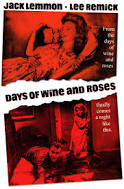
 Amanda S. Stevenson
Amanda S. Stevenson 
 Amanda S. Stevenson
Amanda S. Stevenson 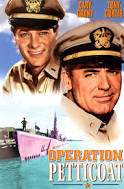
 Amanda S. Stevenson
Amanda S. Stevenson 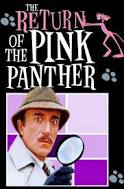
 Amanda S. Stevenson
Amanda S. Stevenson 
 Amanda S. Stevenson
Amanda S. Stevenson 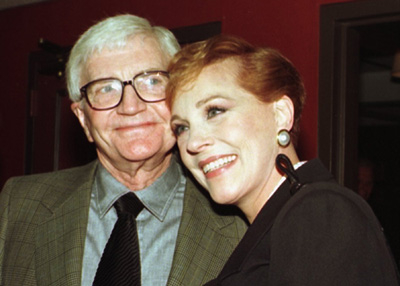
 Amanda S. Stevenson
Amanda S. Stevenson 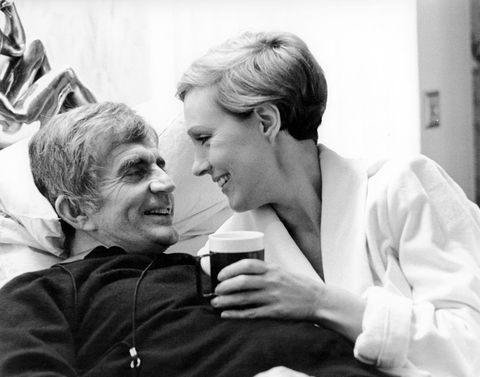
 Amanda S. Stevenson
Amanda S. Stevenson 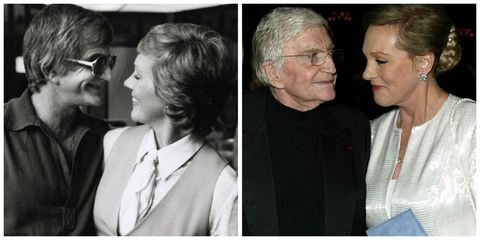
 Amanda S. Stevenson
Amanda S. Stevenson 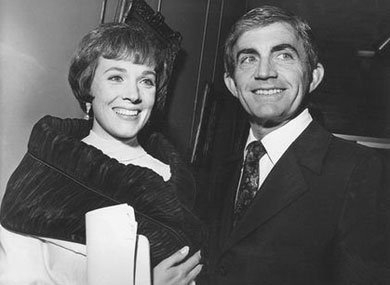
 Amanda S. Stevenson
Amanda S. Stevenson 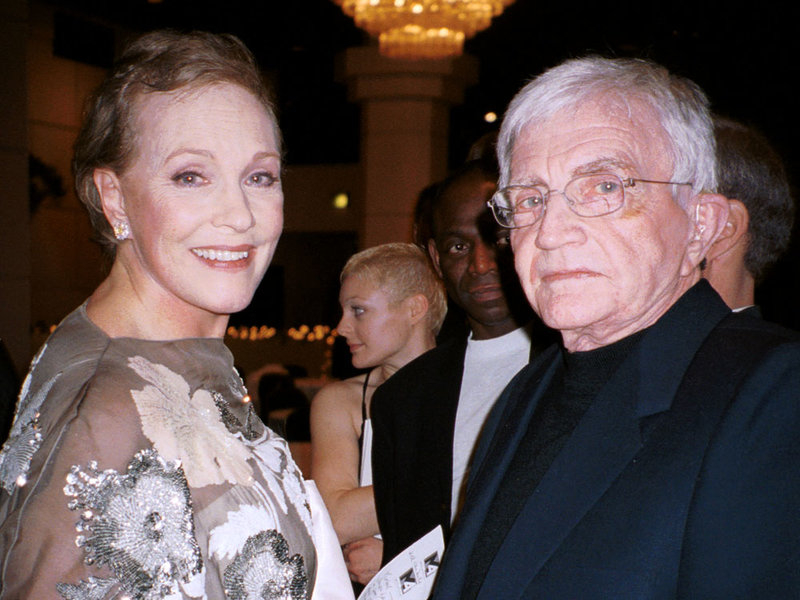
 Amanda S. Stevenson
Amanda S. Stevenson 